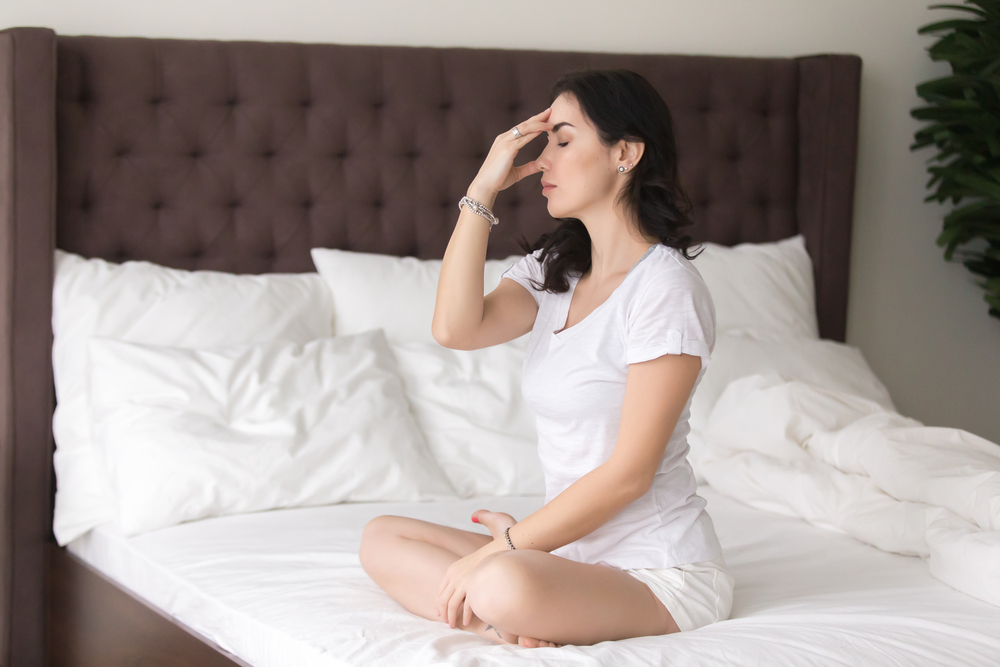It’s National Stress Awareness Month in the UK, an event that has been taking place every April since 1992. Data suggests that 79% of adults say they are frequently stressed and a whopping 1 in 14 say they are stressed every day.
Whilst it’s good to know you’re not alone, it’s more important to discover what may be helpful to alleviate stress.
Clinical Nutritionist Suzie Sawyer shares her thoughts on stress and some helpful tips to combat it.
What is stress?

When we’re stressed, we can experience a myriad of symptoms including anxiety, poor sleep, bad digestion, weight loss or gain, and sometimes hair and memory loss.
Essentially, our stress response is managed by the stress hormone cortisol. As with everything in the body, this is a complex, but beneficial and effective way of managing the response. We often refer to this as ‘fight or flight’ and this action is also connected to adrenaline release.
Whilst this response is necessary for life, we don’t want the body to be in this stressful state all the time. And that’s where tips for reducing stress can come in very handy.
Breathe deeply

This may sound a simple but it’s incredibly effective at pushing the body out of fight or flight into a more relaxed state, and there’s plenty of research to support it too.
Essentially, by breathing in deeply from the belly, for about four or five seconds and breathing out for the same time at the same pace, the body goes back into the parasympathetic nervous system, where it prefers to be most of the time. Just doing this for a few minutes each day can really help. When you’re next feeling stressed, why not give it a try?
Get out in nature

We also know from research that the human psyche prefers to be out in nature. Indeed, it’s where we as humans evolved from. In our fast-paced lives, often hemmed into large cities, we often lose that connection with nature, and this in turn does not help our mental wellbeing.
If you can get outside in nature easily, then make sure you do this every day, even just for 15 minutes. Most big cities have parks or green spaces where you can escape. Whatever you can do to be near to nature more often is going to improve your mental wellbeing and help reduce stress levels.
Prioritise sleep

This is a big one! We all know how rubbish we can feel after a bad night’s sleep. Unfortunately, these bad effects compound over time if sleep is frequently poor.
The most important hours for sleep are between 10 pm and 4 am: this is when the body repairs and restores. Try and get into bed earlier so that you’re more likely to achieve restorative sleep during these hours.
If you’re really struggling, then why not use the power of nature and try some herbs such as valerian, passionflower, or lemon balm? Additionally, ashwagandha really supports the stress response, reduces high cortisol levels, and helps sleep too.
Clean up your diet

Whilst it’s not always possible to eat the perfect diet, there are certain foods that really stimulate the stress response and can make you feel more anxious. Top of the list are caffeinated drinks, especially coffee, so try and limit the amount you’re drinking in any one day. Alcohol can also really exacerbate anxiety, so check how much you’re consuming. Ideally cut them out completely for a couple of weeks and see if things improve.
Additionally, sugary foods can make some people more jittery. Processed cakes, biscuits, and pastries are high in sugar and low in nutrients so all need to be kept to a minimum. Try just having one ‘treat’ day each week, rather than eating these foods regularly.
Investigate behavioural therapies

The great news is there are plenty of therapies that are incredibly helpful for dealing with stress. Cognitive Behavioural Therapy (CBT) has great research to support many aspects of mental wellbeing. There is plenty of help available, so speak with a healthcare professional and try to find out what resonates for you.
Additionally, doing yoga, Tai Chi, Pilates, or other mindful exercise can really work too. Even just taking positive steps to help yourself can make you feel better. There is support out there so do reach out.
[1] https://www.healthassured.org/blog/stress-awareness-month-2024/#:~:text=Stress%20awareness%20month%20happens%20every,in%20your%20organisation%20or%20business.&text=Stress%20has%20become%20a%20problem%20within%20the%20average%20UK%20workplace.



























Add comment